If you are struggling to make a decision in the NYU vs Cornell debate, you have reached the right place. Two of the top-notch universities located in the state of New York, they are known for their academic excellence, global reputation and the immense opportunities they provide to their students.
Cornell University (unofficially nicknamed the Big Red) is a private Ivy League research university located in Ithaca, New York. The university was established in 1865 and has, since then, risen to be one of the top universities in the country. It ranks 16th in the world and 12th in the country and is highly sought after for its programs in agriculture, architecture, veterinary medicine, hospitality management, engineering and psychology among others. One of the cutting-edge centres for research, the university is a proud host of renowned researchers and scholars, expert faculty, and a vibrant student community.
New York University (NYU, nicknamed the Violets) is also a private research university located in NYC. Founded in 1832, NYU ranks 35th in the country and 43rd in the world. With an open campus that is woven into the streets of urban New York, NYU is a premier research institution known for its programs in law, business, and performing arts, among other disciplines. The university is also renowned for its pioneering faculty, diverse student community, and immense alumni network, which are spread all over the globe.
Here is how the two schools stand apart. This article covers –
NYU vs Cornell: A Quick Glance

Here is a quick look at what sets these two schools apart. The finer aspects of these differences are explored in detail in the following sections.
1. Ranking and Prestige:
Cornell ranks higher than NYU and is a member of the Ivy League. However, NYU’s Law school, Stern School of Business and Tisch School of the Arts are all world leaders in their fields, ranked even over some of the Ivies.
2. Ownership and Location:
Both are privately owned, not-for-profit research universities located in New York state. NYU is in Manhattan and Brooklyn while the main campus of Cornell is located in Ithaca.
3. Campus Size and Vibe:
NYU’s buildings are part of the city, without an enclosed space called the university campus. The bustle of the city weaves itself into campus life. Cornell, on the other hand, has an extensive, serene, suburban campus, helping students build a close-knit community.
4. Acceptance Rate and Student Population:
While their acceptance rates are relatively evenly matched, NYU has a much bigger student population than Cornell. The table below will help you compare the numbers of the two universities.
5. Academics:
NYU is more known for its social sciences, business, law, and art programs while Cornell has a much stronger reputation for being deeply rooted in the sciences. This however is a generalisation since Cornell’s hospitality management programs are some of the finest in the world. NYU also has more options for undergraduate students when compared to Cornell.
Cornell vs NYU at a glance
| NYU | Cornell | |
| Established in | 1831 | 1865 |
| Ownership | Private Research University | Private Research Ivy League University |
| Mascot | Bobcat | Touchdown, the Big Red Bear |
| School Colours | Purple and white | Carnelian Red and White |
| Nicknames | Violets | Big Red |
| Academics | ||
| US News National Rank | 35 | 12 |
| Bachelor’s Degree Majors | 270+ | 80+ |
| Number of Master’s Degrees Offered | 100+ | 100+ |
| Popular Areas of Study |
|
|
| Fees and Scholarships | ||
| Average Tuition Fee for BA/ BSc per year | $62,796 | $68,380 |
| Average Tuition Fee for MA/ MS per year | $40,000 – $114,000 | $44,768 – $85,376 |
| Average Financial Aid | $53,790 | $55,325 |
| Eligibility Criteria | ||
| Average High School GPA | 3.7 | 3.8 – 4.1 |
| Median SAT/ ACT Test Scores for admission | SAT: 1470 – 1570 ACT: 33 – 35 (Test Optional) |
SAT: 1480 – 1570 ACT: 33 – 35 (Test Optional but recommended) |
| English Language Requirements | TOEFL iBT: – 100 IELTS: 6.5 – 7.0 |
TOEFL iBT: – 100 and above IELTS: 7.5 |
| Acceptance Rate | 8 – 10% | Around 7% |
| Student Population | ||
| No. of undergraduate students in 2023 | 29,760 | 16,071 |
| No. of graduate students in 2023 | 27,575 | 10,213 |
| Average Early Career Salary of Graduates | MBA – $170,000 Undergraduates – $71,128 |
MBA – $163,896 Undergraduates – $86,445 |
| Student Faculty Ratio | 8:1 | 9:1 |
| Average Class Size | 58.4% of classes with fewer than 20 students | About 55% of classes have fewer than 20 students |
| Campus | ||
| Campus Location | Manhattan, Brooklyn | Ithaca |
| Campus Type | Open campus, part of NYC | Suburban campus |
NYU versus Cornell: Academics

One of the key distinctions that can make a student prefer Cornell vs NYU debate is academics. The courses that they offer, their choices and flexibility, ranking, degrees and class sizes, academic calendars, research facilities and budgets can become important factors in deciding which college is best suited for you.
Overall and Subject Ranking
When making your choice of university, if ranking and prestige are key factors, then Cornell clearly stands ahead of NYU. Cornell ranks 12th in the country according to the U.S. News for the year 2024 and 16th in the world for 2025 according to QS World University Rankings. Cornell also belongs to the prestigious group of Ivy League Universities along with the titans of higher education such as Harvard, Princeton, Yale, University of Pennsylvania, Brown, Dartmouth, and Columbia University.
Cornell University is also world renowned for its programs in agriculture, engineering, hospitality and architecture programs, among the varied other options it offers its students. The university also has one of the oldest and most esteemed programs for veterinary medicine in all of the United States. Does it make Cornell the better option, right from the get go?
The answer is yes, only if the school’s Ivy League status makes a significant difference in your decision making process. At the outset, NYU ranks 43rd globally and 35th nationally. But when looking at individual areas of study, NYU schools are just as eminen and rank even higher than Cornell’s. NYU Stern School of Business, Tisch School of Performing Arts, and Tandon School of Engineering are highly sought after, and selective.
Ultimately, both institutions foster a competitive yet collaborative environment, designed to push students towards excellence. Here is a quick comparison of the university ranks for 2024
| New York University | Cornell University |
| Overall National Rank US News: 35 | Overall National Rank US News: 12 |
| Times Higher Education WUR: 27 | Times Higher Education WUR: 20 |
| QS WUR 2025: 43 | QS WUR 2025: 16 |
| Subjects and Other Ranking (Source: QS and US News) | |
|
|
To sum up, if you compare overall ranking and the global reputation of the two universities, they are both prestigious and globally recognised with their own specialised areas of expertise. This simply means that both universities have departments that outdo one another. As a prospective student researching options, the focus ought to be on subject rankings, depending on the course of your study and not too much on the university ranking as a whole.
The one key difference is that Cornell has the prestigious distinction of being an Ivy League University, while NYU does not have that tag attached to it. With the Ivy tag comes the assumption of academic rigour, top notch students due to highly selective admissions, and a certain sense of elitism. In comparison, there are some schools of NYU such as the Law School, Tisch School of Arts, or the Stern B-School which rank even higher than some of the Ivies. But looking at NYU as a whole, their programs, especially the undergraduate ones, are at par with those offered in the Ivies.
Constituent Schools
The different courses at NYU are offered by the following schools and colleges.
- College of Arts & Science
- Graduate School of Arts & Science
- Liberal Studies
- College of Dentistry
- Courant Institute of Mathematical Sciences
- Gallatin School of Individualised Study
- Grossman School of Medicine
- Institute of Fine Arts
- Institute for the Study of the Ancient World
- Leonard N Stern School of Business
- Robert F. Wagner Graduate School of Public Service
- Rory Meyers College of Nursing
- School of Global Public Health
- School of Professional Studies
- School of Law
- Silver School of Social Work
- Steinhardt School of Culture, Education, and Human Development
- Tandon School of Engineering
- Tisch School of the Arts
The schools and colleges that constitute Cornell University are
- College of Agriculture and Life Sciences
- College of Architecture, Art and Planning
- College of Arts and Sciences
- Cornell SC Johnson College of Business
- Peter and Stephanie Nolan School of Hotel Administration,
- Charles H. Dyson School of Applied Economics and Management
- Samuel Curtis Johnson Graduate School of Management
- Cornell Ann S. Bowers College of Computing and Information Science
- College of Engineering
- College of Human Ecology
- School of Industrial and Labor Relations (ILR)
- Cornell Jeb E. Brooks School of Public Policy
- Cornell Tech (New York City)
- Cornell Law School
- College of Veterinary Medicine
- Graduate School
- Weill Cornell Medicine (New York City and Doha)
- Weill Cornell Graduate School of Medical Sciences (New York City)
- School of Continuing Education and Summer Sessions
Degrees and Class Sizes
Another important factor in choosing NYU or Cornell is the difference in size – be it in terms of student population, number of programs or class sizes.
| NYU | Cornell | |
| Undergraduate Population | 29,760 | 16,071 |
| Graduate Population | 27,575 | 10,213 |
| Number of Undergraduate Options | 270+ | 80+ |
| Number of Graduate Options | 100+ | 100+ |
| Student – Teacher Ratio | 8:1 | 9:1 |
| Classes with fewer than 20 students | 58.4% | ~ 55% |
Here is what we can glean from the table.
- NYU has a much larger student population, both at the undergraduate and the graduate level. This can be an advantage or a disadvantage, depending on your personal preferences.
- Some students thrive in a larger, competitive environment with more opportunities to socialise and build networks. While Cornell is not less competitive in any way, a relatively smaller student body can also mean more attention per student.
- NYU also has many more choices of majors, when compared to Cornell. This might not be a deciding factor if you have a specific field or major in mind, but if you are looking to explore options as an undergrad student, then NYU has more than Cornell.
- While the student to faculty ratio is comparable, NYU does have more teachers per student, when compared to Cornell.
At the undergraduate level, most universities have a core curriculum that is mandatory for all students. This curriculum typically includes topics from the liberal arts and physical sciences, enabling the student to take on an interdisciplinary approach right from the beginning.
Unlike the other Ivies that have a fairly set core curriculum, the College of Arts and Science at Cornell has what is called “distribution requirements” that a student has to meet to complete their Bachelor or Arts or Bachelor of Science degree. Instead of taking very particular courses, each student can choose between a range of courses that fall into categories such as the Physical and Biological Sciences, Cultural Analysis, Historical Analysis and many others. The requirements are often broad and are very diverse. Likewise, NYU also has a far more flexible core curriculum with fewer mandatory course requirements.
Key Dates for Application
In this section, we will be looking at the key dates for application and admission into undergraduate programs to get a sense of the timeline. It is also recommended that you verify with the specific department / school that you are applying to, just to ensure they do not follow a different cycle.
| Important Dates | NYU | Cornell |
| Early Decision (ED) Deadline | ED I – November 1 ED II – January 1 |
November 1 |
| Regular Application Deadline | January 5 | January 2 |
| ED admission decisions posted in | ED I – December 15 ED II – February 15 |
Mid-December |
| Regular Decision Posted in | April 1 | Early April |
| Deadline to accept offer of admission | 4 weeks from the date of offer | May 1 |
| Average Acceptance Rate | 8% | 7% |
Admission Options to be considered in the Cornell NYU debate
1. Both universities do not have Early Action but have the Early Decision (ED) admission cycle.
2. ED in both universities is binding. It means students admitted through ED are contractually bound to enrol in the university and withdraw any other application.
3. The Common Application is required for both universities, along with a supplemental essay
Semester vs Quarter
Both NYU and Cornell follow a semester system, with the main academic calendar spreading through Fall (August/ September – December) and Spring (January – April/ May). Both universities also have a shorter summer term during which some academic activities take place.
What are the top three courses to study at NYU?
1. Business

Stern Business School at New York University provides a well-rounded business education at the bachelor’s, master’s and doctoral level. Ranked 11th in the country by QS Rankings, NYU Stern offers some of the most competitive business programs on the eastern coast of the United States. It is one of the few top-rated business schools in the US that offer numerous STEM-certified undergraduate degrees in business, including a BS in Business, BS in Business and Political Economy, BS in Business, Technology and Entrepreneurship, and concurrent degrees in Business, Film and Television.
At the graduate level, besides the MBA and its specializations, Stern offers degrees in Accounting, Data Analytics and Business Computing, Marketing and retail science, Organization Management and Strategy, Quantitative Economics, and Quantitative Finance. With stalwart faculty at the top of their fields and an emphasis on social impact, NYU has some of the best business programs in the country.
2. Law

Ranked 6th in the world, having overtaken most of the Ivies including Columbia, the London School of Economics and UCL, the NYU School of Law offers top-notch legal programs in the country. At the cutting edge of interdisciplinary research and teaching, NYU’s strengths lie in strengths in law and philosophy, economics, politics, history, and social theory. Their courses on international, comparative, and foreign law are renowned the world over. NYU Law also offers a number of dual degree programs, as well as other grad schools at the university. This unique opportunity enables students to complete a Juris Doctor degree and earn a Master’s degree in four years.
3. Visual and Performing Arts

Besides being located in the middle of New York’s vibrant arts scene, the Tisch School of Arts is one of the preeminent centres for the study of the performing, cinematic and emerging media arts. This school is the alma mater of some notable artists, including Lady Gaga, Martin Scorcese, Chris Columbus, Adam Sandler, Alec Baldwin, Rainn Wilson, Alexis Bledel, Andy Samberg and M Night Shyamalan. Tisch brings together artists and scholars from around the world to study acting, dance, cinema studies, collaborative arts, design for stage and film, dramatic writing, film and television, game design, interactive media arts, interactive telecommunications, moving image archiving and preservation, musical theatre writing, performance studies, photography, public policy, and recorded music.
What are the top three courses to study at Cornell University?
1. Engineering

One of the largest engineering programs in the Ivy Leagues, Cornell Engineering is recognised for its academic rigour, commitment to excellence in education and research, and longstanding legacy. It ranks 10th in the country for its undergraduate engineering programs and 30th in the world for Engineering and Technology as a whole. The school offers 14 majors and 21 minors at the undergraduate level and is particularly renowned for its Environmental Engineering and Earth and Atmospheric Sciences program.
2. Architecture

Cornell’s College of Architecture, Art and Planning is ranked 19th in the world by QS Subject Rankings for this field. Their programs are known for their innovative pairing of studio design with history and theory courses so that students can develop creative and critical design practices that make a lasting impact. The department also has a Cornell in Rome program, a specialized program that focuses on architecture design, history, and theory; visual arts; art history; urban studies; and Italian language, history, and culture. Cornell’s Department of Architecture brings together social equity, sustainability, and engineering technologies, making the study of planning and design into a deeply layered and complex field in preparation for the real world.
3. Plant and Animal Sciences

Although it is listed under one heading here, there are numerous study options in this area of study, ranging from agriculture to veterinary medicine. Cornell is world-renowned for these programs and offers numerous options at both the undergraduate and graduate levels. These are programs through which you can learn how to significantly impact food security, climate change, biodiversity conservation, sustainable living, and many other challenging problems. Cornell’s School of Veterinary Medicine is also one of the oldest and most reputed schools in the country.
Note: Although the section title says top 3, it is also important to mention the Cornell Peter and Stephanie Nolan School of Hotel Administration for its hospitality and leisure management programs. They are considered some of the best in the world, and the school has been awarded Best Hospitality and Hotel Management Schools in the World for 2024 by CEOWorld.
Notable Faculty, Alumni and Research Facilities
Both NYU and Cornell have a long list of illustrious alumni, including former presidents, Nobel laureates, McArthur fellows, and numerous other distinguished scholars. Moreover, some of the biggest names in Hollywood have graduated from the Tisch School of Arts of NYU. However, Cornell’s has produced over 50 Nobel Prize winners, while there are 5 Violet Nobel Prize winners.
Both are R1 research universities that allocate over $1 billion for research. While areas of interest and specialisation can vary, both universities promote a culture of research and scientific curiosity. Cornell is home to over 100 interdisciplinary research organizations that bring together students and faculty.
| Academics – Key Similarities and Differences |
| 1. While both are distinguished universities with a global presence, Cornell is part of the elite Ivy League while NYU is not.
2. Cornell ranks higher than NYU at the overall level, but there are some departments where NYU outshines its Ivy competitor. This includes the Law School, Stern Business School, Tisch School of the Arts and humanities departments. Cornell is better known for its engineering, agriculture, veterinary medicine, architecture, psychology and other science programs. 3. NYU has more than double the number of undergraduate majors to choose from, when compared to Cornell. 4. Both universities follow an academic calendar that is divided into semesters. 5. While Cornell has the smaller student body, NYU has the lower student to faculty ratio when compared to Cornell. 5. Both schools offer numerous study abroad options that allow students to attend a semester or a year abroad. While Cornell typically ties up with partner universities and organisations, NYU has global academic centres located in 12 cities around the world, in addition to partner institutions. 6. Both schools offer a flexible core curriculum for students of all majors to build an intellectual foundation and develop well-rounded skill sets. |
NYU vs Cornell: Fees and Scholarship Opportunities

After academics, the next important distinction that will help you decide when it comes to the NYU Cornell debate is the cost involved. The cost of attendance (tuition), additional expenses such as books, student fees, insurance and housing must be taken into account before making a choice.
Since both New York University and Cornell University are privately owned, they do not offer subsidised tuition rates for in-state students like the other American public universities. Here is a table that will help you compare these two top universities in the matters of fees and scholarships.
| Annual Rates | NYU | Cornell |
| Tuition (Bachelor’s) | $62,796 | $68,380 |
| Average Tuition (Master’s) | $40,860 – $96,705 | $44,768 – $85,376 |
| MBA Tuition | $86,092 – $113,365 | $83,106 – $129,918 |
| Housing | $10,240 – $26,720 | $12,296 |
| Types of Financial Aid | 1. Scholarships and Grants 2. Federal Loans 3. Work Study Grants 4. External Scholarships |
1. Cornell Grants and Scholarships 2. State and Federal Grants 4. Work Study 5. LoansAll are need-based. Cornell University does not offer merit scholarships. |
| International student scholarships |
|
|
| Average financial aid for first year students | $59,000+ | $55,325 |
| Admission Decisions | Need aware for international students | Need aware for international students |
| Demonstrated Need Cover | 100% (Families with income less than $100,000 will not have to pay tuition) | 100% (Families with income less than $60,000 are assigned a $0 parent contribution) |
Note:
1. The tuition fees are average figures, calculated for a typical academic year of 9 months. The fee will be higher should you choose to take extra courses in the summer months.
2. The tuition fee amounts in the table are indicative of only the cost of attendance. It does not include books, student health insurance and other expenses. Student insurance alone can cost between $3,000 – $7,000 a year.
3. While NYU has a few merit scholarship options, all scholarships that come out of Cornell University are need-based. What it means is that all aid funded directly by Cornell University is awarded only on a need basis. However, you can look into external scholarship options if you are looking for merit scholarship options.
NYU vs Cornell: Student Life and Post-Graduation Opportunities

Here are a few other factors that can make you prefer Cornell University to NYU, or the other way around. The university’s location, campus life, and the extracurricular activities available can also become important points of consideration, especially if the universities are otherwise well matched. So, here are a few other factors that will help you decide when looking at Cornell vs NYU
1. Location
One of the primary distinctions when looking at these two universities is their location. Both of them are located in the State of New York, but the two are very different in terms of location. And, if you are asking “how far is Cornell from NYC?”, the answer is about 235 miles (about 4 hours, if you are driving).
NYU is located in New York City, particularly in the boroughs of Manhattan and Brooklyn. The main Cornell campus is situated upstate in the Finger Lakes region of Ithaca (lovely area, but miles from a big city). However, Cornell Tech and Weill Cornell Medical School are located in New York City.
Unlike the cosmopolitan bustle of NYC, the Ithaca campus is known for its serene locales, suburban vibe and an abundance of hiking and adventurous activities immersed in nature around the lakes. The arboretums and botanical gardens are perfect getaways for students looking to take a break from the pressure of academia.
As an NYU student, you will have easy access to some of the world’s best cultural and social attractions. Living in NYC has its advantages, depending on your personal preference – are you looking for a relatively quiet and suburban college experience or do you thrive in the hustle of a city that never sleeps.
2. Campus
NYU:

Source: NYU
The largest private university in the USA, the New York City campus of NYU houses 11 schools and colleges that offer hundreds of bachelor’s and graduate degree options to its students. While most schools are located in the main campus located in Greenwich Village, the Tandon School of Engineering is located in downtown Brooklyn.
NYU’s campuses are scattered amidst the city, primarily concentrated around Washington Square Park. The university does not have a separate enclosed campus but rather weaves through the buzzing tapestry of NYC. The 170+ buildings of the university spread between Manhattan and Brooklyn also includes, in addition to the academic, research, and residential premises, the Centre for Student Life, Office of Global Services, NYU Box Office, and the Wasserman Centre for Career Development.
Besides New York, the university also has degree granting campuses in Abu Dhabi and Shanghai.
Cornell:

Source: Cornell Chronicle, Cornell University
Unlike the NYU campus, Cornell University has a dedicated enclosed campus in Ithaca, NY. The main campus spans 2,300 acres and houses most of the academic and residential premises. It provides a traditional college experience of state of the art resources for academics and research, eateries, residence halls, and libraries. The campus is renowned for its natural beauty and extensive lawns.
In addition to the main campus at Ithaca, the university has the Weill Cornell Medical School on the Upper East side of NYC, Cornell Tech on Roosevelt Island, NYC, a branch of Weill Cornell ain Doha, Qatar, Cornell AgriTech in Geneva, New York, the Cornell Brooks School of Public Policy in Washington DC, and the Palazzo Santacroce for the Cornell in Rome, Italy architecture program.
3. Student Population
NYU: The student enrollment at NYU as of Fall 2023 was around 61,950, out of which 29,760 were admitted in bachelor degree programs, 27,575 in graduate and professional degree courses and around 4,615 in noncredit programs. Like the city, the student population is also highly diverse, with a majority of international students, creating a multicultural learning atmosphere. Here is a break up of the student population, based on 2023 enrollment.
- International: 24%
- White: 22%
- Asian/Pacific Islander: 19%
- Hispanic/Latino: 17%
- African American: 8%
- Other: 10%
Cornell: When compared to NYU, Cornell has a smaller undergraduate and graduate student body. The university has 16,071 undergraduate students and 10,213 grad students enrolled in both full-time and part-time programs. The university is known for its commitment to diversity with over 47% of its students identifying as students of colour. About 10.5% of Cornell’s student body is made up of international students. The typical ratio of students by gender is 54 to 46, women to men. The university maintains a student to faculty ratio of 9:1.
3. Housing
NYU: Living on campus is optional for NYU-NYC students. The university has 20 residence halls located in Greenwich Village and Brooklyn. Around 11,500 (around 20%) undergraduate and graduate students live on campus. Over 97% of the rooms available in NYC dorms are shared spaces. The chances of getting private accommodation are very low. First year students at the Tandon School of Engineering will be assigned residence halls in Brooklyn only. On-campus housing costs anywhere between $11,000 and $27,000, depending on the nature of the room. The university also hosts an off-campus housing website for students researching options outside of the university.
Cornell: The university has numerous residence halls which provide a vibrant and diverse ethos for its students. There are also 9 program houses (also known as themed residence halls) that allow you to interact with, and immerse in a culture of shared interests. Rooms are either single, double, triples or quads for undergraduate students. Grad students, especially those with family, have a wider range of housing options to choose from.
Freshmen and second year undergraduate students are required to live on campus and take up a meal-plan. Around 55% of Cornell undergraduates live on campus for all 4 years of study.
4. Sports and Extracurriculars
NYU: Every year, around 450 NYU student athletes compete on 23 NCAA Division III varsity sports teams. In addition, around 850 Violets face rival schools, as members of the 24 intercollegiate club teams. Intramural athletics range from soccer, basketball, and badminton to e-gaming, box cricket, and bowling. In addition, NYU also houses the Palladium Athletic Facility, 404 Fitness, and the Brooklyn Athletic Facility that offer classes for both recreation and fitness.
In addition to athletics, the university houses over 300 active student clubs and organizations that cater to a wide range of interests, from cheese to superheroes. These clubs function in addition to the school-based clubs that are specific to NYU schools or academic programs. All NYU students can access the entire list of clubs and organizations through NYU Engage. The university also has a vibrant culture of Greek life (fraternities and sororities) that encourages leadership and cultivates friendships.
The university also hosts a number of student-led media, ranging from traditional magazines, a radio streaming and broadcast called the WNYU and an independent student newspaper called the Washington Square News. Furthermore, NYU Steinhardt sponsors orchestras, choirs, and music ensembles, some of which are open to all students of NYU.
Cornell: Like with the other Ivies, Cornell has a flourishing culture of athletics and other extracurricular activities. Unofficially called the Cornell “Big Reds”, the university has 37 NCAA Division I varsity teams and over 100 club sports ranging from archery to soccer.
In addition to athletics, the university enables over a 1,000 student clubs and organizations, hundreds of community service groups, and 60 sororities and fraternities having an active Greek life on campus. The university provides countless opportunities to pursue your favourite activities, discover new interests, refine your skills and build lifelong friendships.
5. Internships
In both the schools, the career cell is the ideal place to begin your research for internships in any location. With internships, you can gain more credits, boost your resume and experience the real world demands of your profession. While listings are available throughout the year, it is expected that you plan your internships around your coursework.
While NYU allows students to gain credit for internships that are actively monitored, Cornell does not award academic credit for completed internships.
6. Employability
NYU: One of the top 10 universities for graduate employability, 95% of NYU graduates are either employed or are pursuing higher education within 6 months of graduation. About 51% receive two or more job offers. The average starting salary for NYU graduates is $75,336.
Cornell: With a graduate employability rate of over 93%, Cornell graduates are some of the most sought after in the world. The average salary of a graduate from the school of arts and sciences is $86,445. The reputation of Cornell University opens up numerous opportunities for graduates across disciplines. The academic pedigree of the institution typically allows its graduates to be recruited at much higher salaries when compared to most other universities.
Summary

Deciding on NYU vs. Cornell is not a simple task. Both are highly reputed schools, highly selective, and have their signature academic programs. That said, here is a summary of the differences.
Cornell is better suited if
- You are looking for a highly ranked, Ivy-League university – and a world leader in almost all disciplines.
- You can keep up with the academic rigour and then reap the benefits of the Cornell name in your career, especially if you are looking at natural sciences or other science-based programs.
- You would enjoy studying in an enclosed, large campus that provides a more traditional university experience in a suburban town, rather than the bustle of NYC.
- You are prepared to live far away from any urban area.
- You prefer being among a smaller student body.
- You want to avail their numerous need-based financial aid options.
- You prefer staying in dorms/ in-campus housing (You have the option of staying outside but the smaller student body allows for more students to stay on campus for the entire duration of study.)
NYU is what you must look into if
- You do not focus on its slightly lower rank but pay more attention to the specific course and the curriculum that you are looking for.
- You want to join the illustrious alums of the Tisch School of Arts or the Stern School of Business
- You would enjoy living in the heart of NYC, in a bustling campus that is part of the cityscape.
- You prefer staying off-campus since housing at NYU can be competitive.
- You want to avail the merit and need-based scholarships that NYU has to offer.
- You want to be part of a top university without the pressure of having to excel in an Ivy.
While these can be factored into your decision, the ultimate call rests on whether the course curriculum and the learning outcomes meet your career plans. The most significant part of your research is to compare courses, syllabi, electives, faculty and research facilities of your preferred degree program, speak to current students, and then decide depending on which school better suits your needs.
We understand that becoming an international student can be very thrilling, but the prep and paperwork of it all can get overwhelming. The easiest way to reduce your stress is to sign up with TC Global.
We simplify international education, learning, and mobility through connecting students, universities, and a global community on a single platform where there are over 1000+ education providers and over 80,000+ courses.
Our platform enables students to study anywhere in the world in just a few steps. From search and discovery and finding the right course fit for you, to applications, visas and departure – we see you through it all.
To move forward with us, download our app or visit tcglobal.com and sign in to create an account on our student platform and onboard with us in quick, easy steps.! 🚀
Then simply set up a visit Calendly.com/tcglobal to pick a Relationships Team closest to you and choose a slot to meet with a Relationship Member. Be it NYU vs Cornell or any such debates, our experts will be with you every step of the way to help you decide.
Let’s shape your future together.
You May Also Like
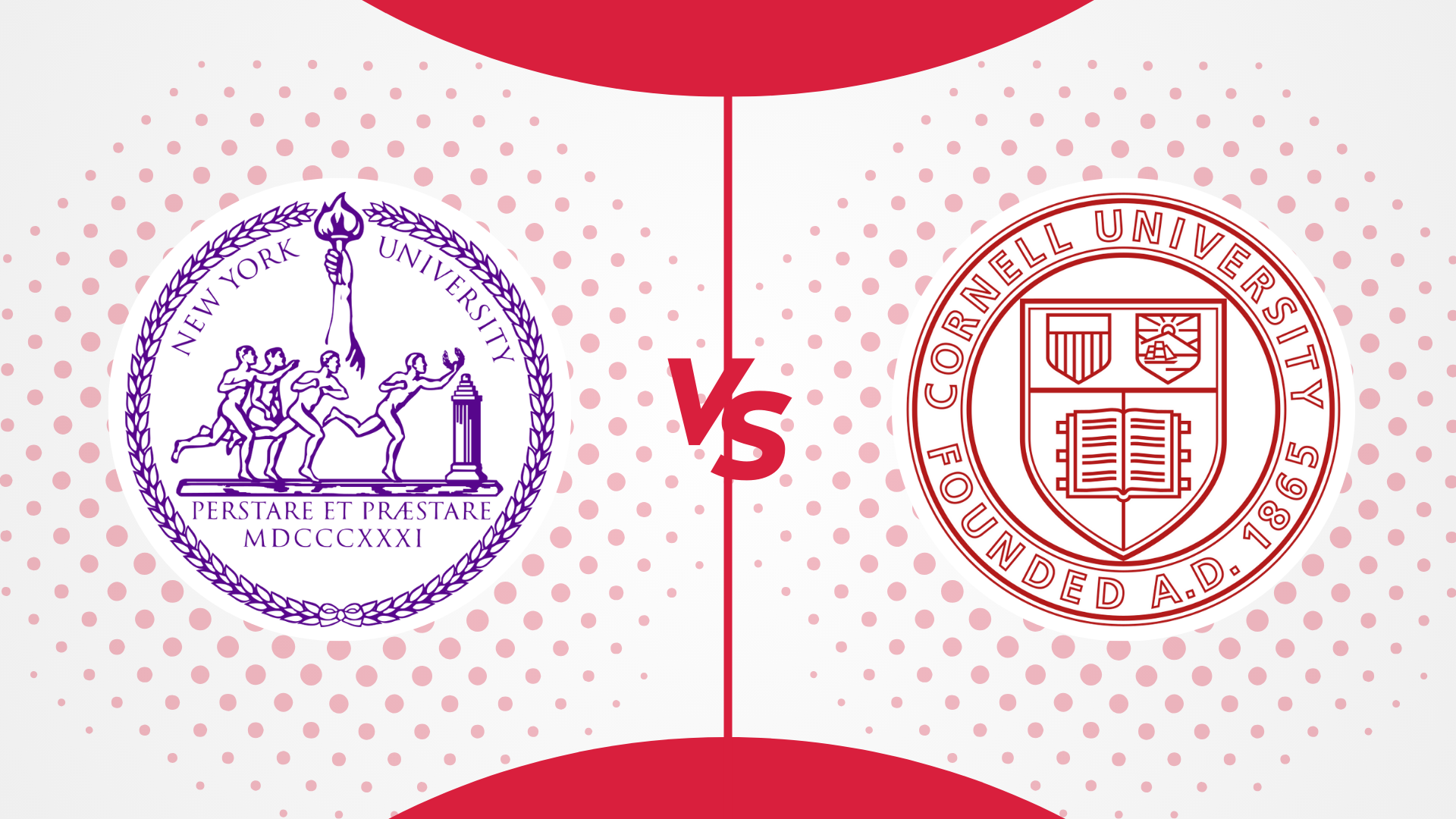
Compare more universities in USA
-
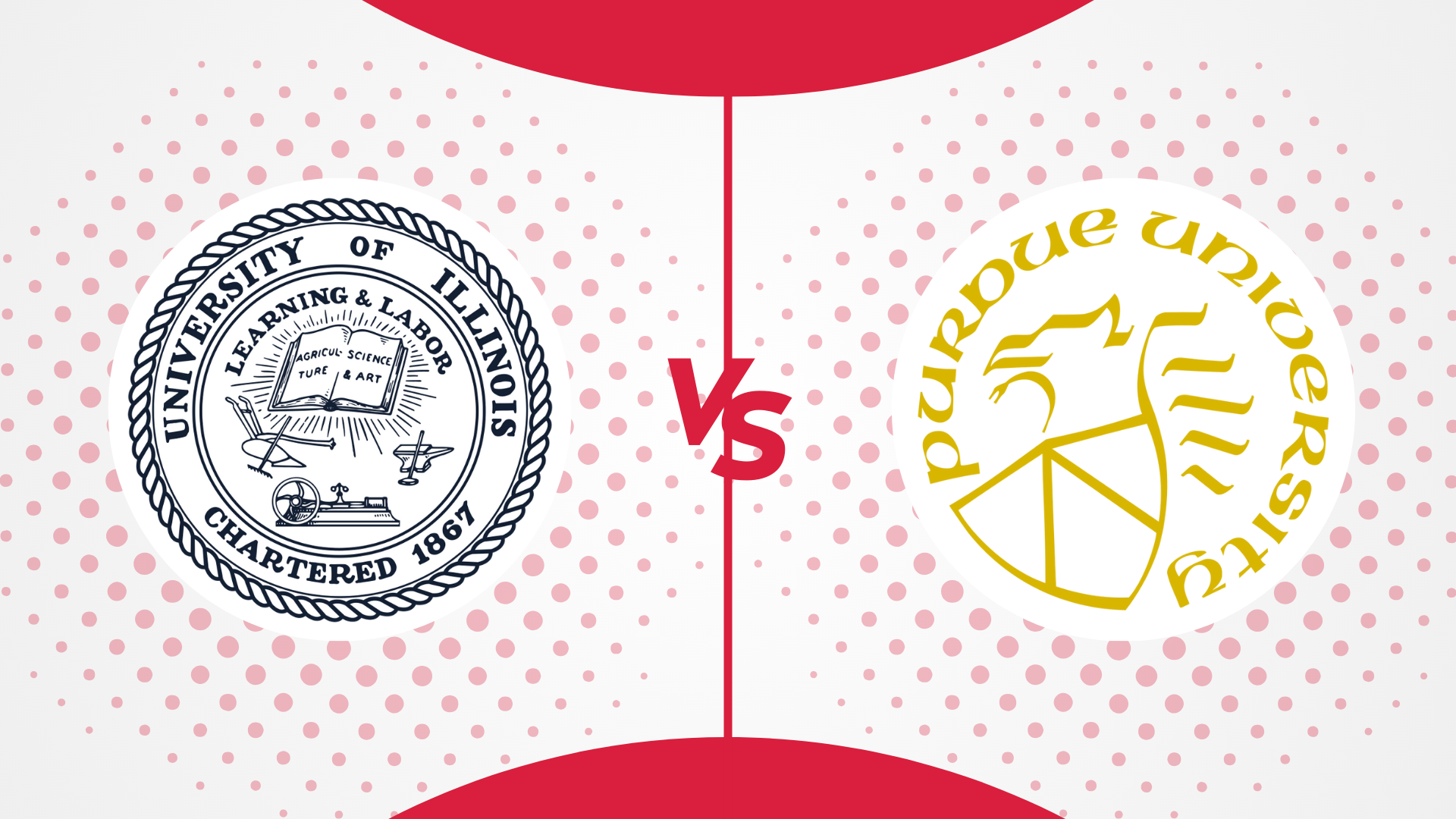
Purdue vs UIUC: How Do They Compare in 2025?
December 16, 2024 -

Tufts vs BU: How Do They Compare in 2025?
December 16, 2024 -

UIUC vs Georgia Tech: How Do They Compare in 2025?
December 3, 2024 -

Georgia Tech vs UT Austin: How Do They Compare? [2025]
September 24, 2024 -

UC Davis vs UC Irvine: How Do They Compare in 2024
September 10, 2024 -
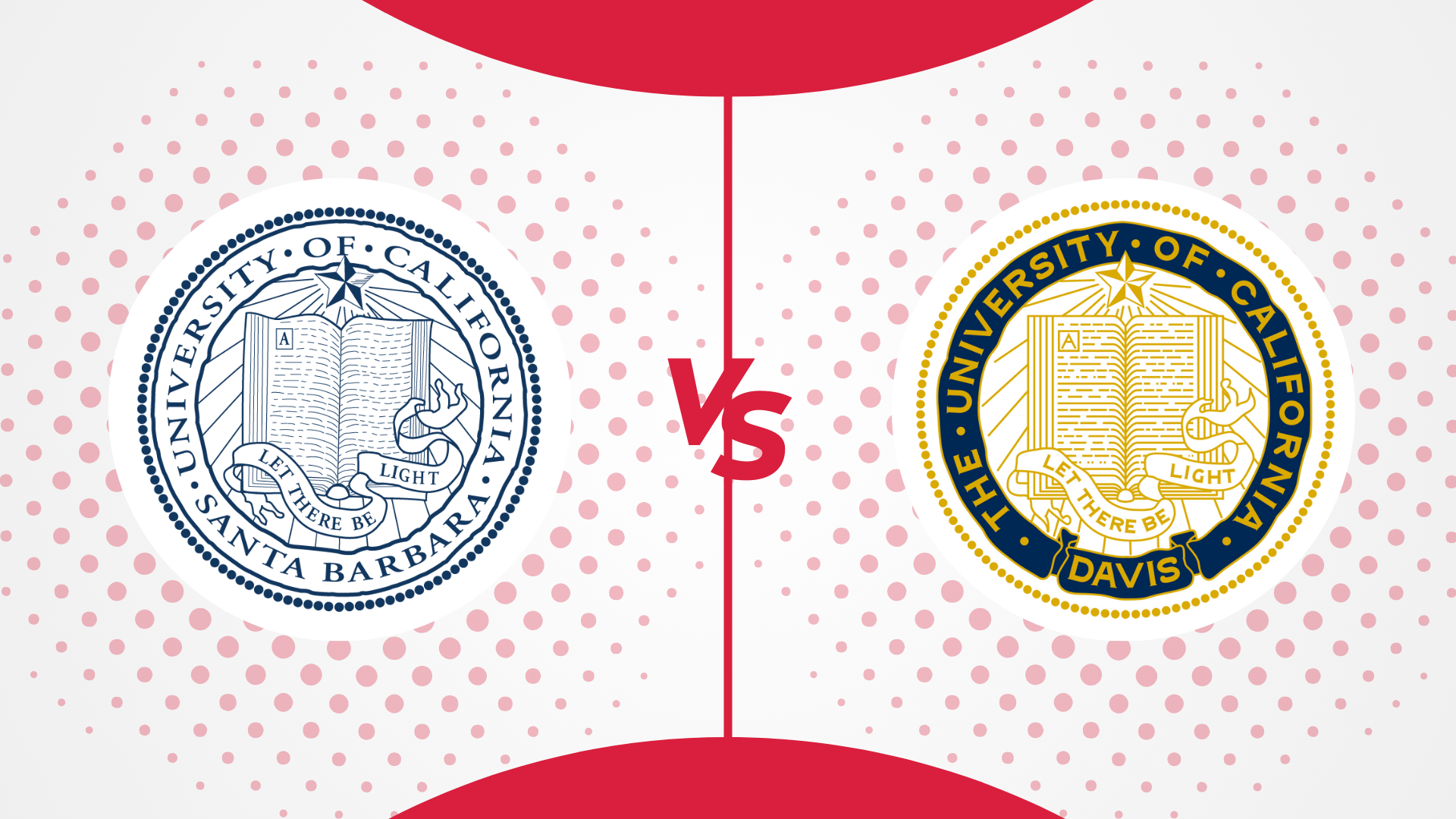
UC Santa Barbara vs UC Davis: How Do They Compare? [2024]
August 30, 2024 -
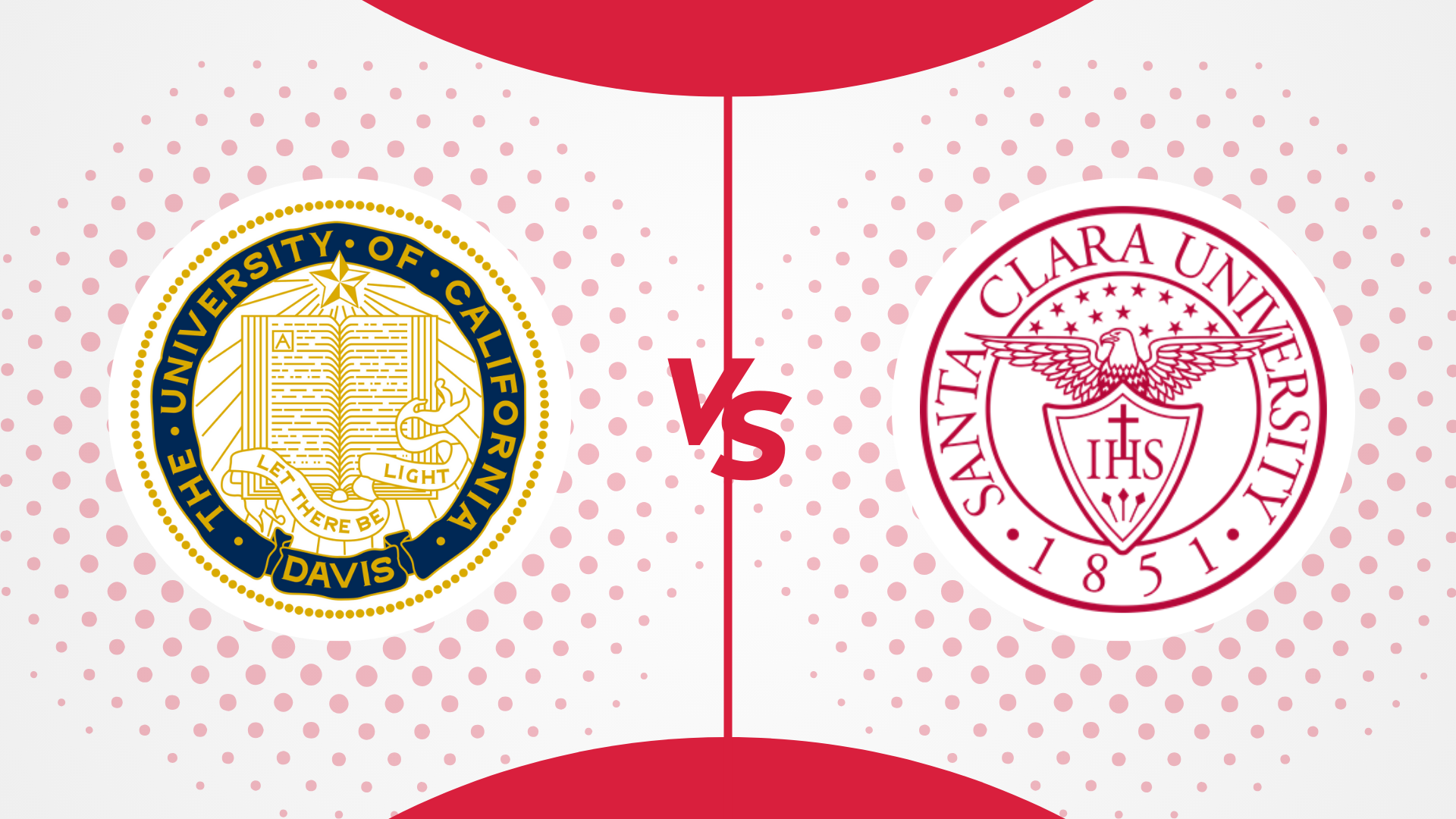
UC Davis vs Santa Clara University: How Do They Compare? [2024]
August 23, 2024 -

University of Chicago vs Northwestern University: How Do They Compare
August 20, 2024 -

Georgia Tech vs MIT: How Do They Compare? [2024]
August 7, 2024 -

Caltech vs MIT: How Do They Compare [2024]
August 2, 2024 -

MIT vs Harvard: How Do They Compare [2024]
July 27, 2024 -

Cornell vs Harvard: How Do They Compare? [2024]
July 27, 2024 -

Yale vs Harvard: How Do They Compare [2024]
July 22, 2024 -

Harvard vs Princeton: How Do They Compare [2024]
July 16, 2024 -
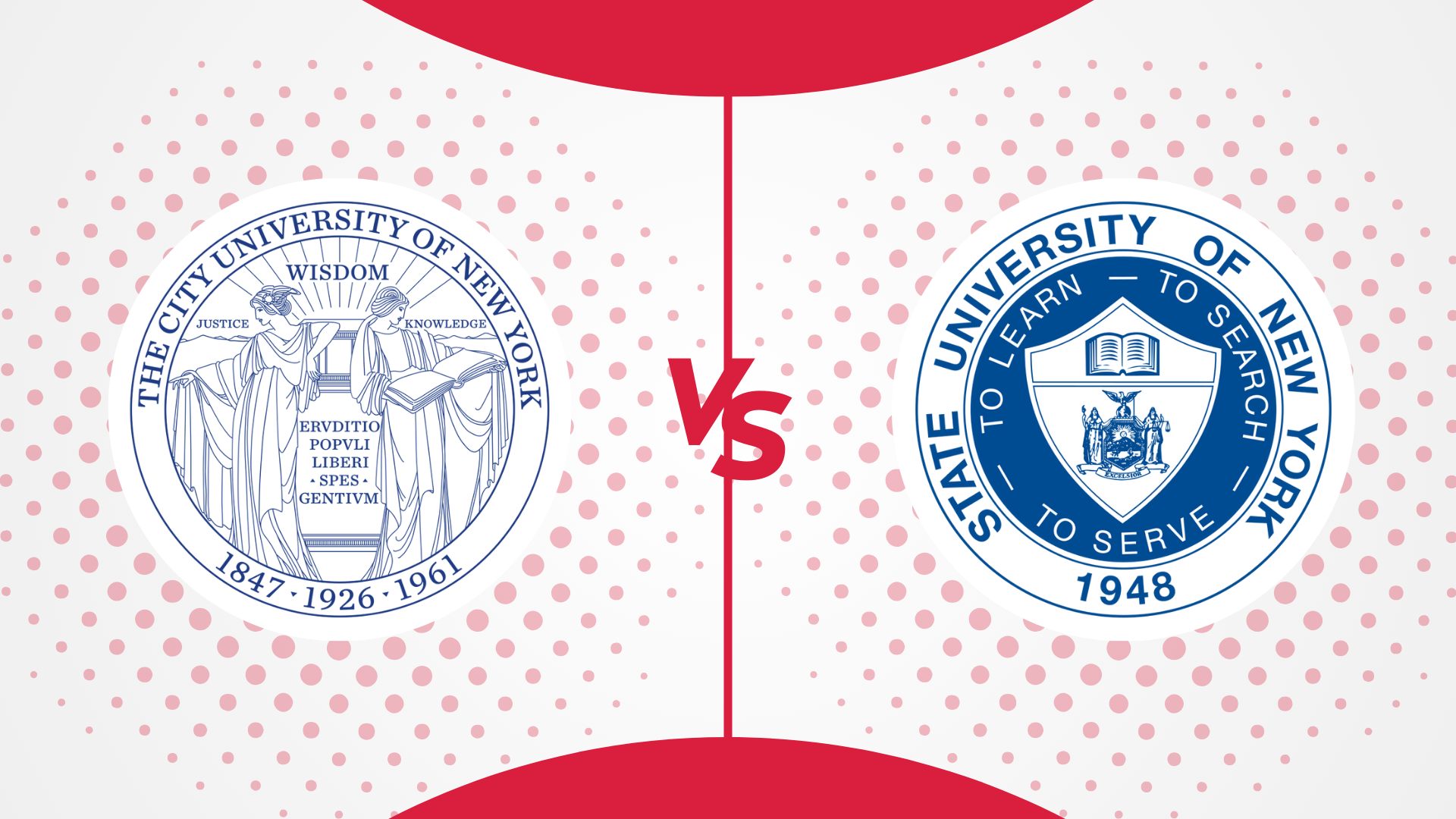
CUNY vs SUNY: Which One is For You in 2024
July 9, 2024 -
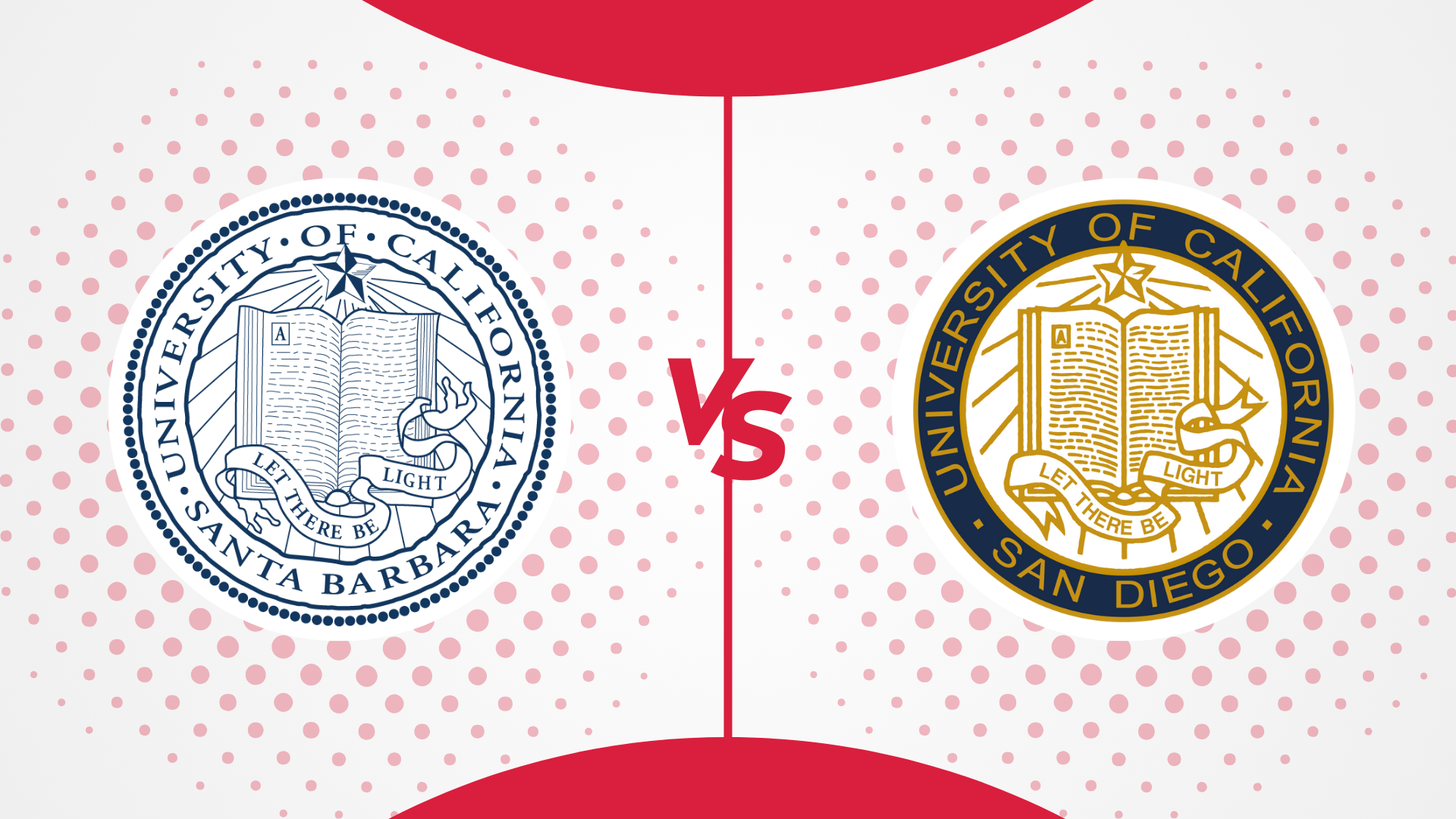
UCSD VS UCSB: Which One is Better For You in 2024
July 9, 2024 -
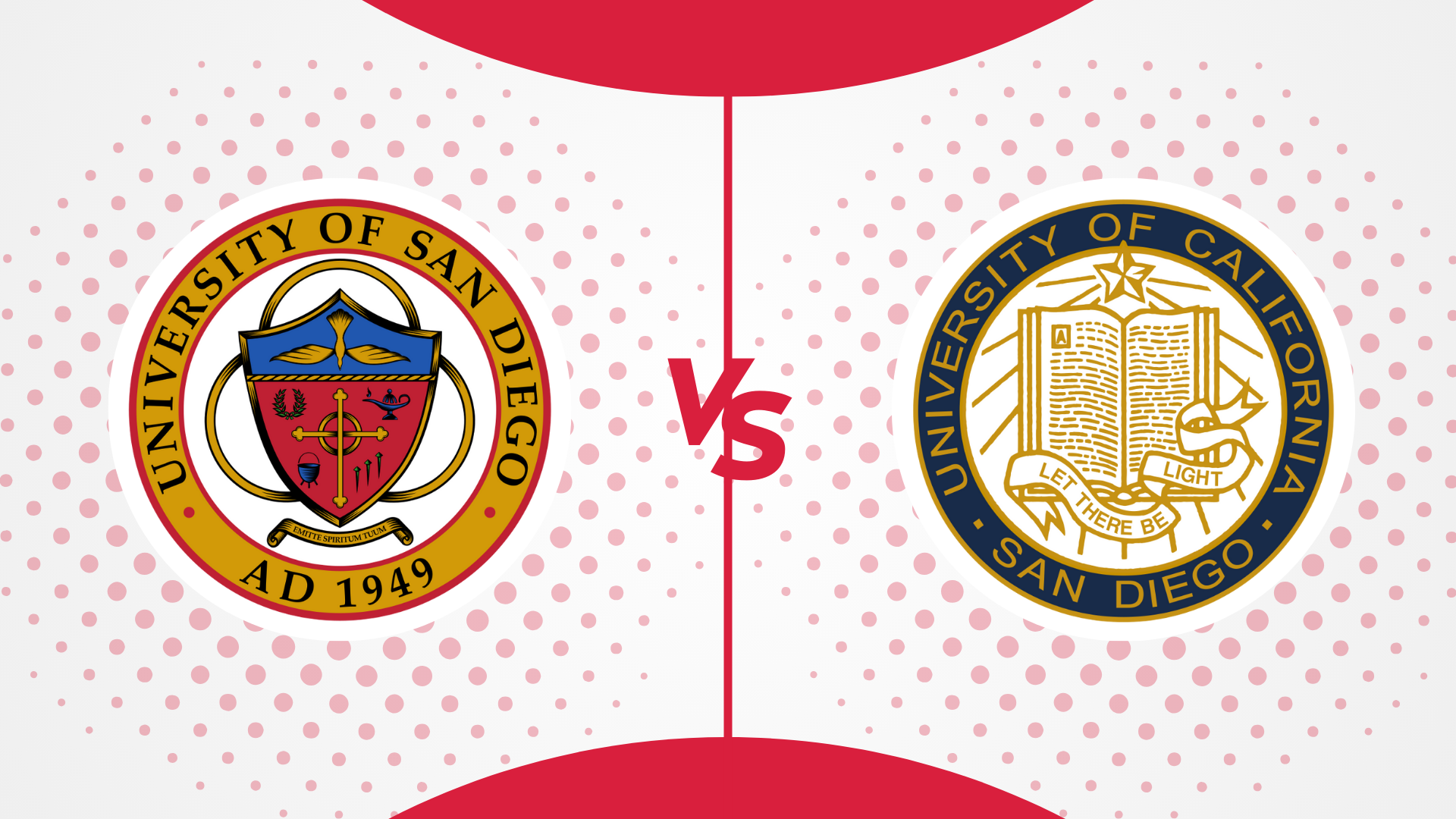
USD vs UCSD: Which one should you choose in 2024?
July 9, 2024 -
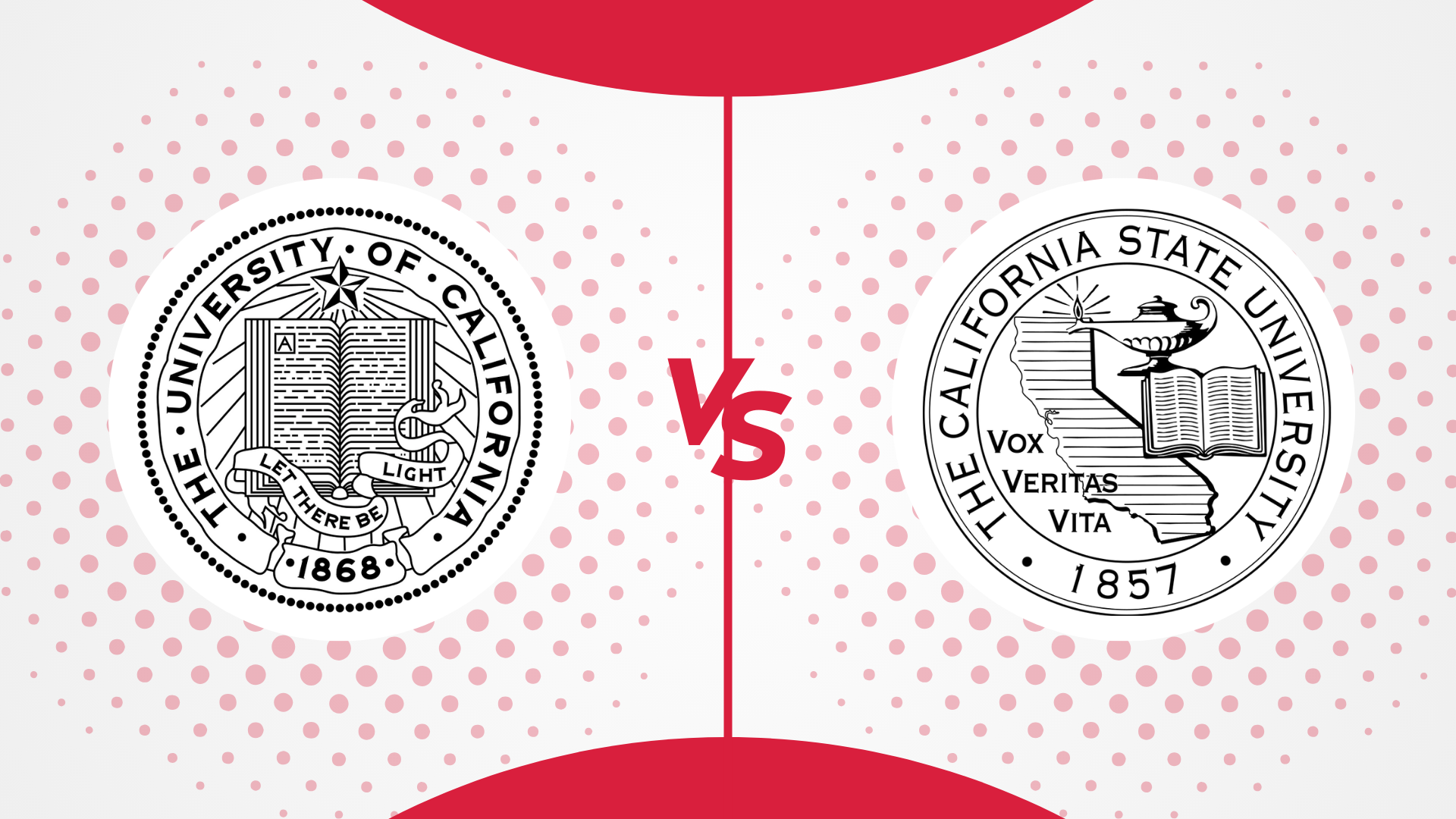
UC vs CSU: Which One is Better in 2024?
July 9, 2024 -
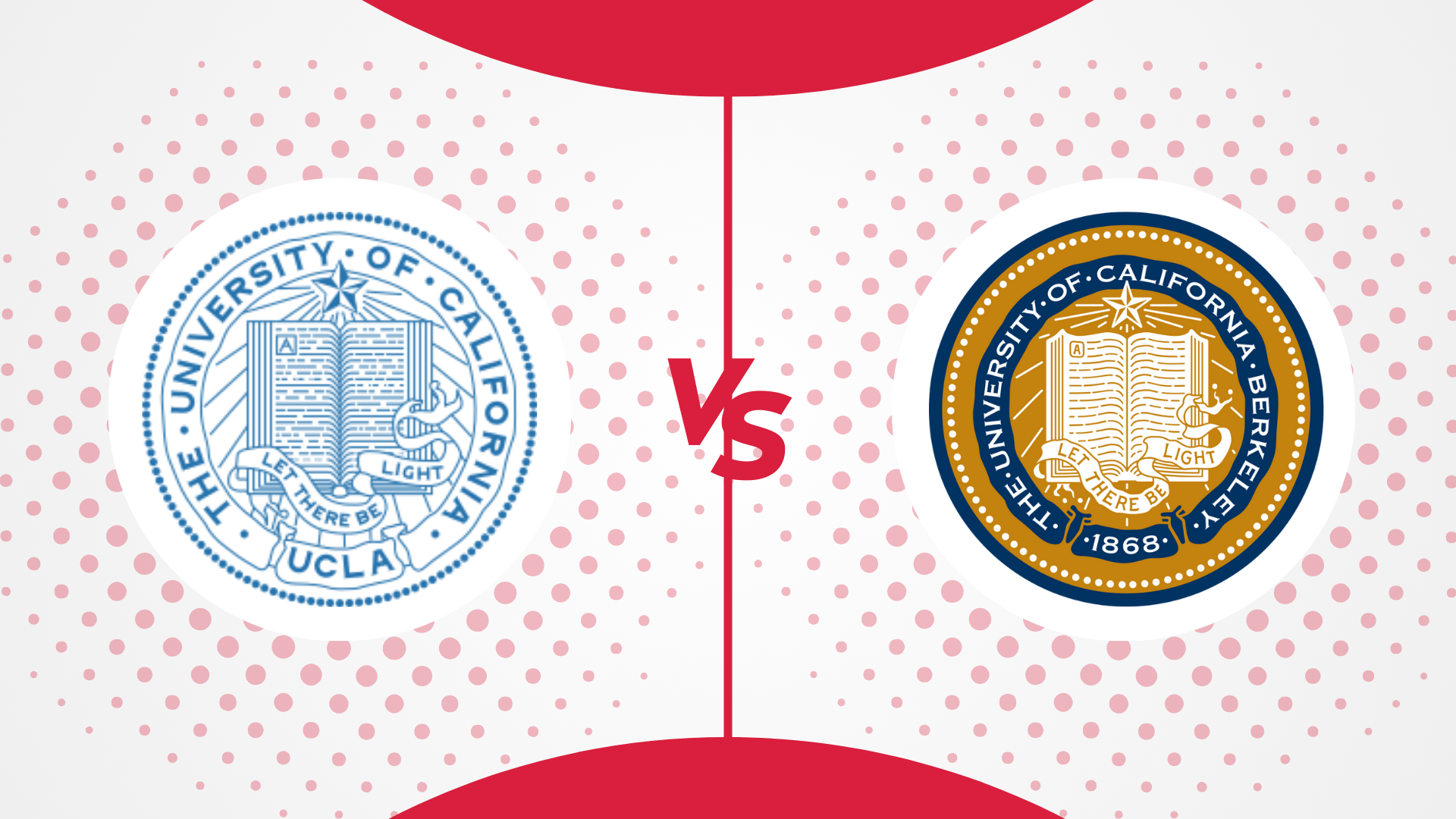
UCLA vs UC Berkeley: Which One is Best in 2024
July 9, 2024 -

University of Arizona vs Arizona State University: Which One is Better in 2024
July 9, 2024 -

Penn State vs UPenn: Which is Better for International Students in 2024
July 9, 2024 -

Northeastern vs Northwestern: Which One is Best in 2024
July 9, 2024 -

Northeastern University vs Purdue University – Which One is Better in 2024?
July 9, 2024 -

Boston College vs Boston University: Which One is the Best in 2024?
July 9, 2024 -

LSU vs UCLA: Which Is Better For You In 2024?
July 8, 2024 -

NYU vs Boston University: Which One Is Better For You In 2024
July 8, 2024 -

USC vs UCLA: Which One Is Better For You In 2024?
July 5, 2024 -
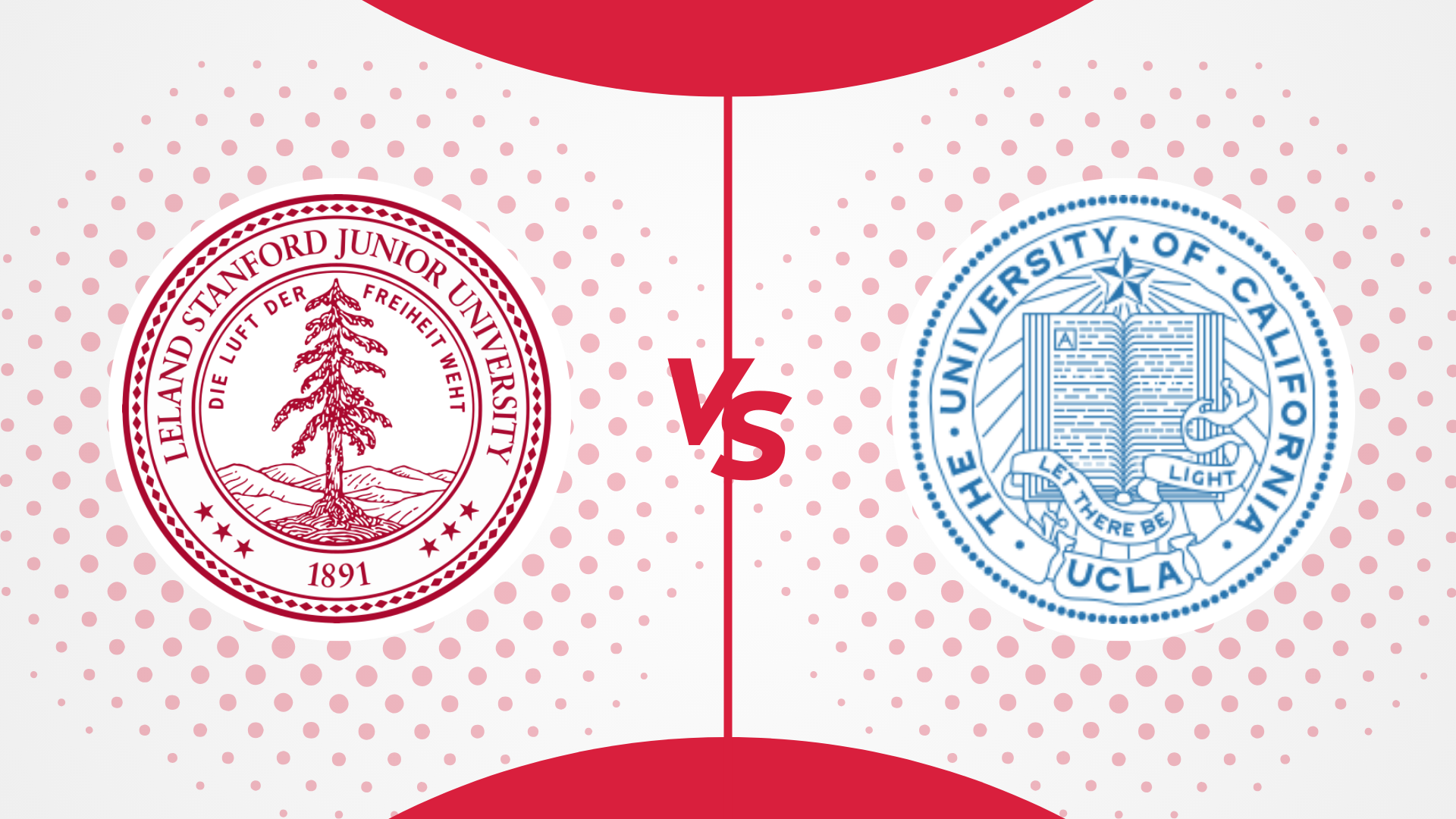
Stanford vs UCLA: Which One is Better For You in 2024
June 28, 2024 -
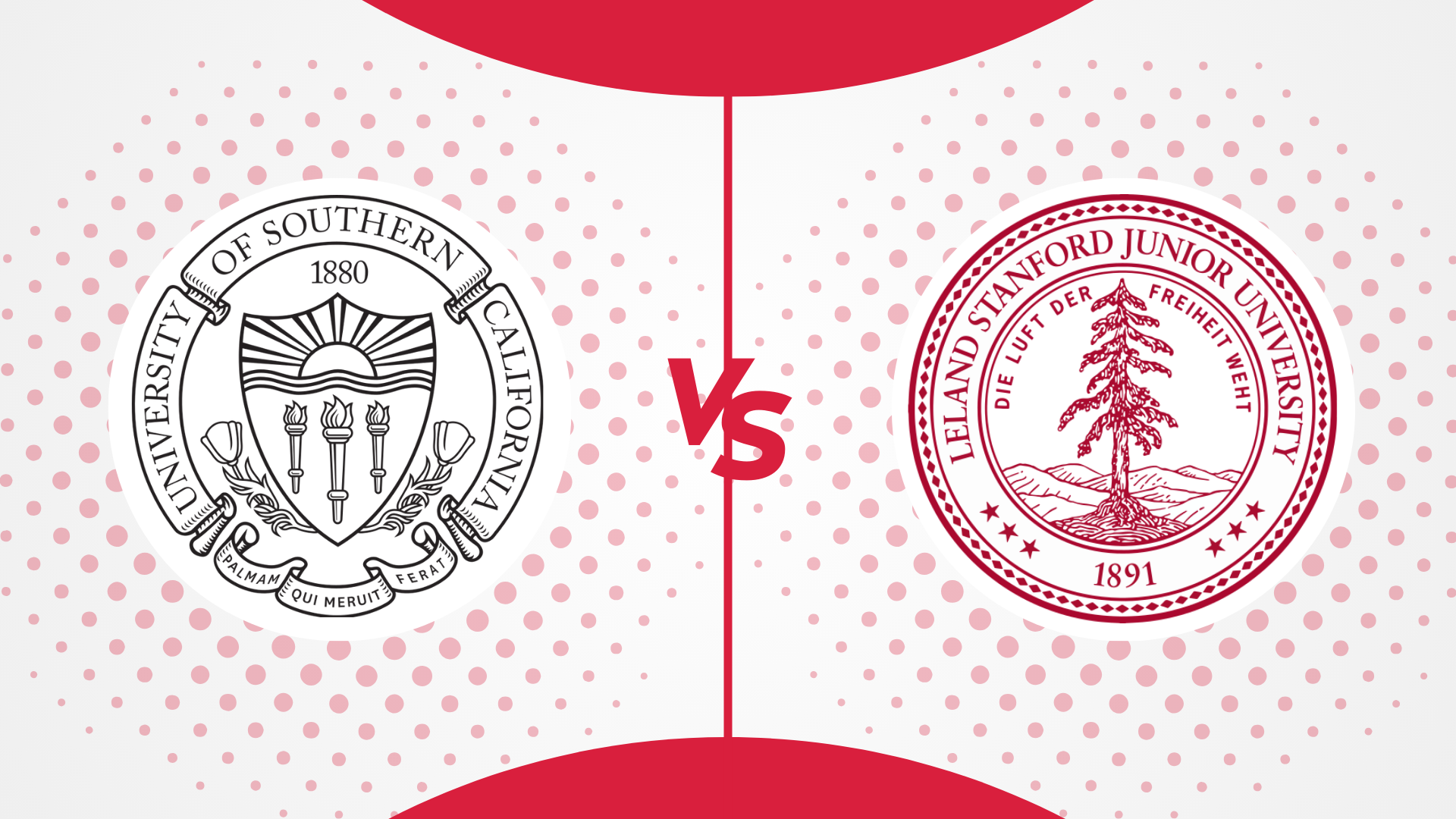
USC vs Stanford: Which One is Better For You in 2024
June 28, 2024 -
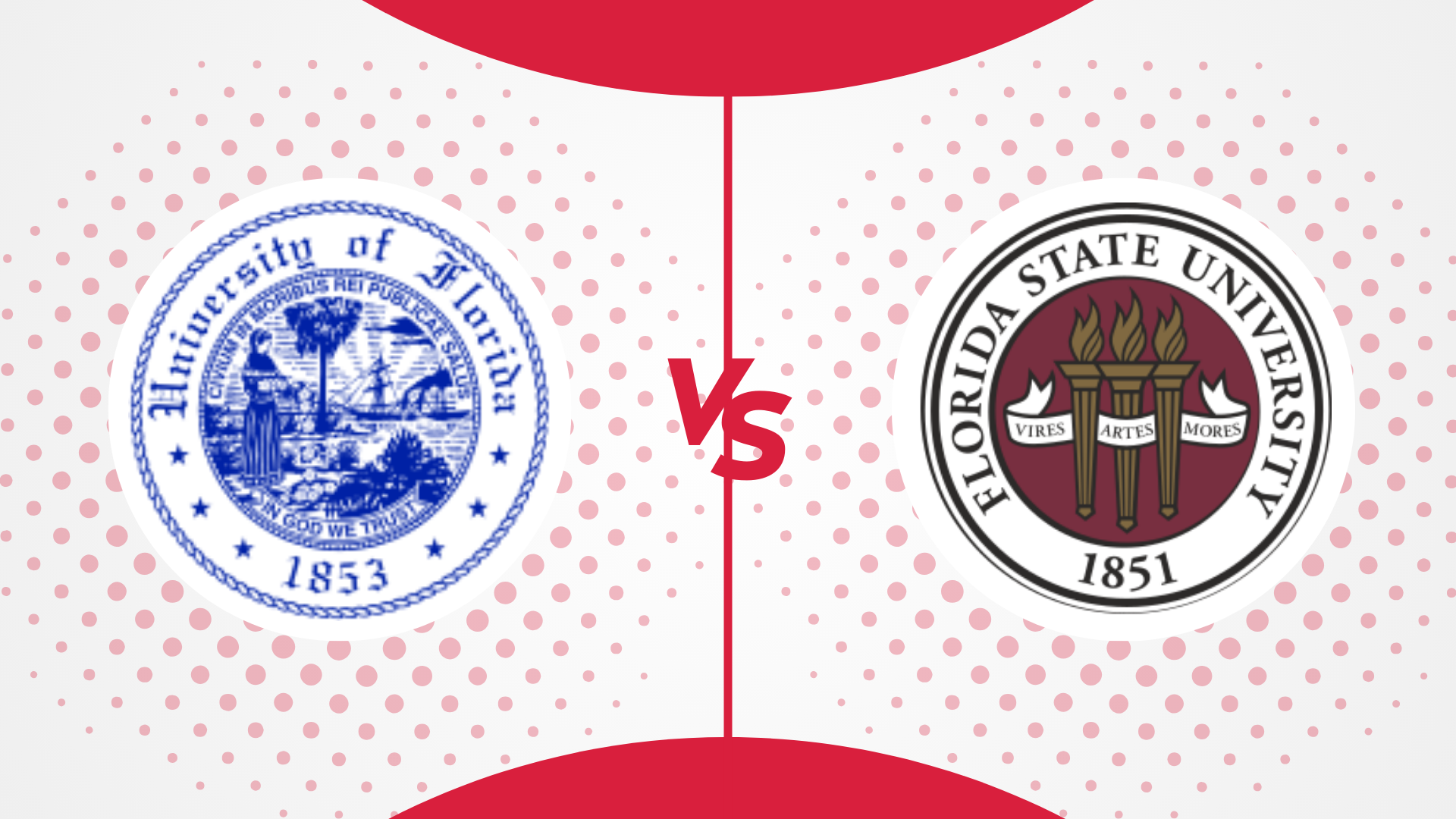
University of Florida vs Florida State University: Which One is Better For You in 2024
June 28, 2024 -

NYU vs Columbia: Which Is Better In 2024?
June 28, 2024 -

Princeton vs Columbia: Which Is Better In 2024?
June 28, 2024 -

Boston University vs Northeastern: Which one is best in 2024
June 28, 2024 -

NYU vs UCLA: Which Is Better For You In 2024?
June 28, 2024














